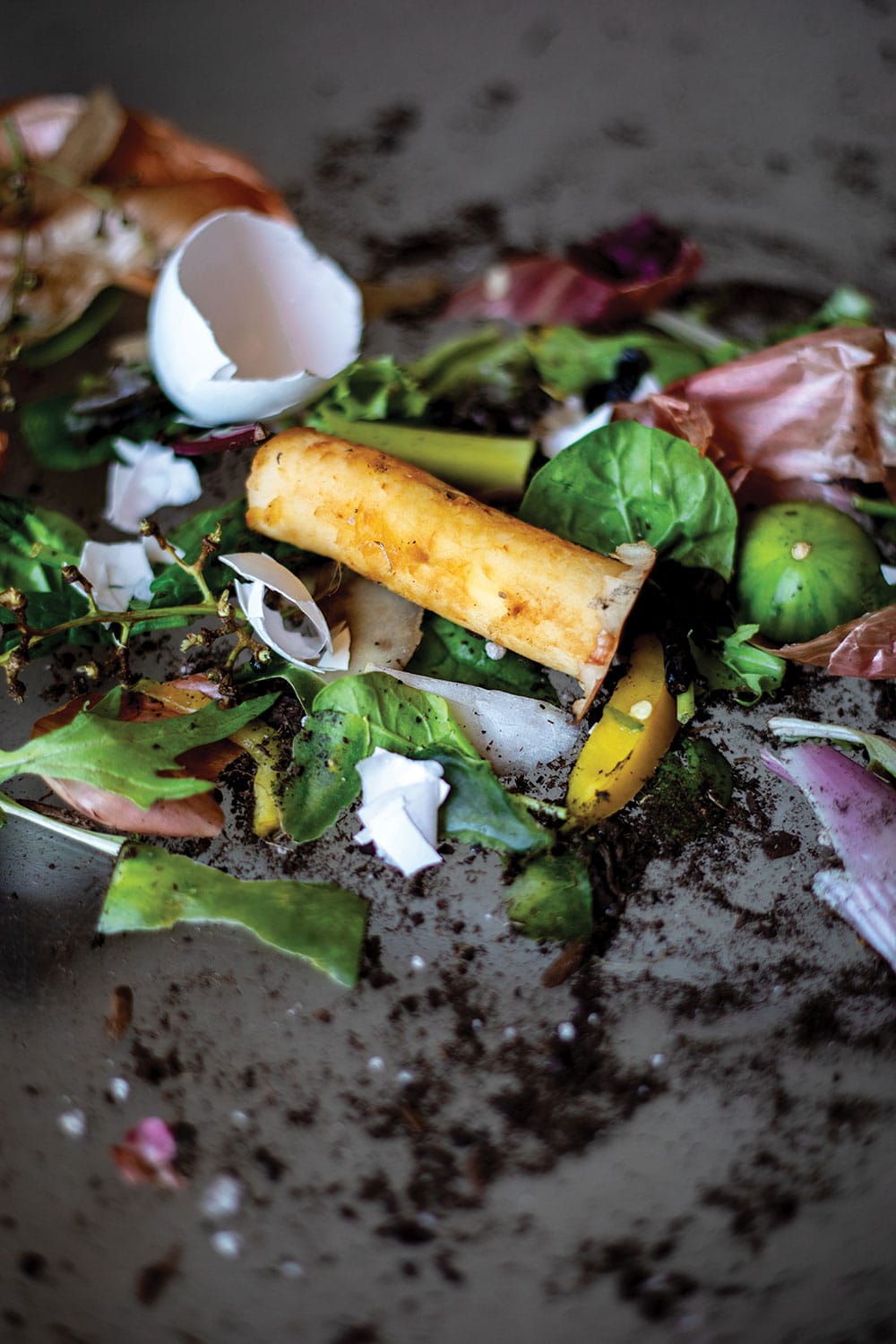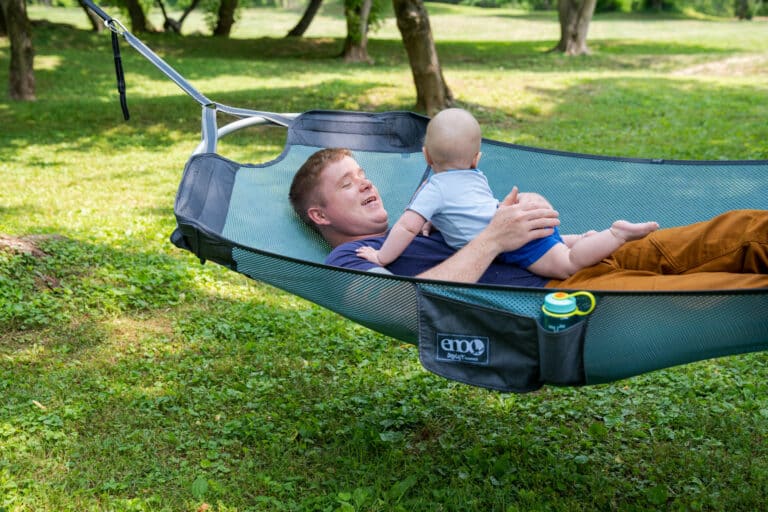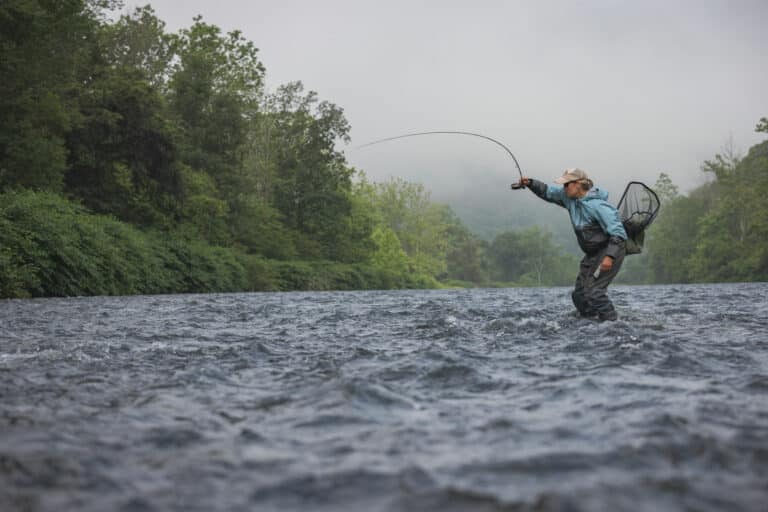How Learning to Compost Spiraled Into a Personal Climate Crisis
From inside my compost container, the kitchen scraps mock me. The rotting apple core reminds me that time is running out, and I’m not doing enough. The cracked egg shells tell me I am fragile, and that there are dozens of problems that need to be solved. The scattered pepper seeds inform me all is lost, and it’s time to give up. Their collective taunts reach my ears as I feel the familiar tightening in my chest, a warning of the panic attack about to come.
Composting wasn’t supposed to be hard. All I needed to do was collect my food waste in the silver, odor-controlled compost crock on my kitchen counter and take it to the community collection bin once a week. It was supposed to be a balm for my anxiety, not another contributing factor. You see, my anxiety feeds on seemingly insurmountable problems, both large and small, by keeping me up at night, consuming my thoughts, and draining me of energy.
When my anxiety gets out of control and my thoughts start spiraling toward the absolute worst possible outcome, I try to break down the problem to more manageable steps. When that problem is something like the all-encompassing climate crisis we are facing, it’s hard to know where to start. Since the pandemic has confined me to working and sleeping in the same 150 square feet, I decided to look around my space and focus on reducing my personal waste.
Composting wasn’t the only thing I did. I started using period underwear to reduce my personal hygiene waste. But at $109 for five pairs, that’s not a reasonable solution for a lot of people. It’ll take about three years for that investment to pay off in what I usually spend on tampons and pads. Better for the environment? Yes. Accessible to all? No. I tried to keep track of how much plastic I was using but quit after a week because HOLY SHIT everything comes in plastic.
Here’s the bummer of it all. This still doesn’t feel like enough—not even close to all the things I could be doing to reduce my impact on the environment. These are all privileged actions I can take because I have one full-time job that pays a living wage, I don’t have kids or parents whose care I am responsible for, and I have access to stable housing, food, and healthcare. All of the changes I make to my lifestyle, all of the letters I write and petitions I sign, all of the money I donate mean nothing on their own.
And it’s true, my actions alone won’t stop the burning of fossil fuels, remove pollutants from our waterways, or halt deforestation—but is it enough for one person? Is the commitment and willingness to change, adapt, and innovate in each person sufficient?
The climate crisis won’t start sometime in the future when the global average temperature reaches two degrees Celsius above pre-industrial levels. We will be around to see the effects because it’s happening right now. It’s changing weather patterns, forcing people from their homes, and making people sick. It’s happening to those who don’t have the money or resources to escape a system built on racism, sexism, and genocide.
Just in writing all of that, my anxiety has skyrocketed. When I think about all the things we need to change about our society—the policies we must implement, the need to radically transform what we value as a society, and the shift in the way we care for one another—how can it not feel hopeless?
The thing I hate the most about my anxiety is that it makes me a pessimist. I like big ideas and goals, but my anxiety tells me there are too many years of destruction, extraction, and isolation to ever get over. Worst of all, it tells me that I am alone.
So that day, staring into my compost container, it all hit. In one moment, I understood that my efforts have not been enough, and yet there is so much out of my control. Alone in the apartment, my hands shook, my heart raced, and my lungs struggled to let air in.
When the panic attack abates, I pick my wrung out body up off the floor. I remind myself that recognizing weaknesses and blind spots is a humbling process. It’s easy to let the guilt and frustration prevent you from trying.
In these moments, when I am tangled up inside myself, I try to think about the drop off where I take my kitchen scraps every week. Being part of a city-wide program to collect compost reminds me that fighting the climate crisis takes all of us. Every time I open the lid to that community collection bin and see all of the other kitchen scraps, I feel a little less alone. I don’t know anyone else in the program, but each bag in the communal bin represents another household.
I think about the environmental justice and climate leaders—people far more brilliant and committed to combating climate change than I am—who have shown us how we can transform our society into one that lives with the Earth rather than takes from it. I think about my mom, who gifted me the counter container for my scraps. She composted on and off as I was growing up. She would keep it up for a while until the demands of a working mother’s life would inevitably interrupt, requiring the time be spent elsewhere.
Now she’s back to composting, filling up her counter container for my dad to lug out to the tumbler in the backyard. Will the two of us, mother and daughter, have the power to reverse the effects of climate change through our compost bins? No, and it would be misleading and conceited of me to say otherwise.
But I have to believe that each one of us can make a significant impact in our community, no matter how many people we are able to reach. Otherwise, my anxiety wins; the fear and bitterness triumphs. I cannot let myself be buried by the weight of uncertainty and inaction. But I can ask myself, in the end, will I have done enough?
Who I’m Learning From
We all consume information in different ways. Below are a few resources that have helped me understand the many nuances of the climate crisis, recommended ways to get more involved, and made me feel a little less alone.
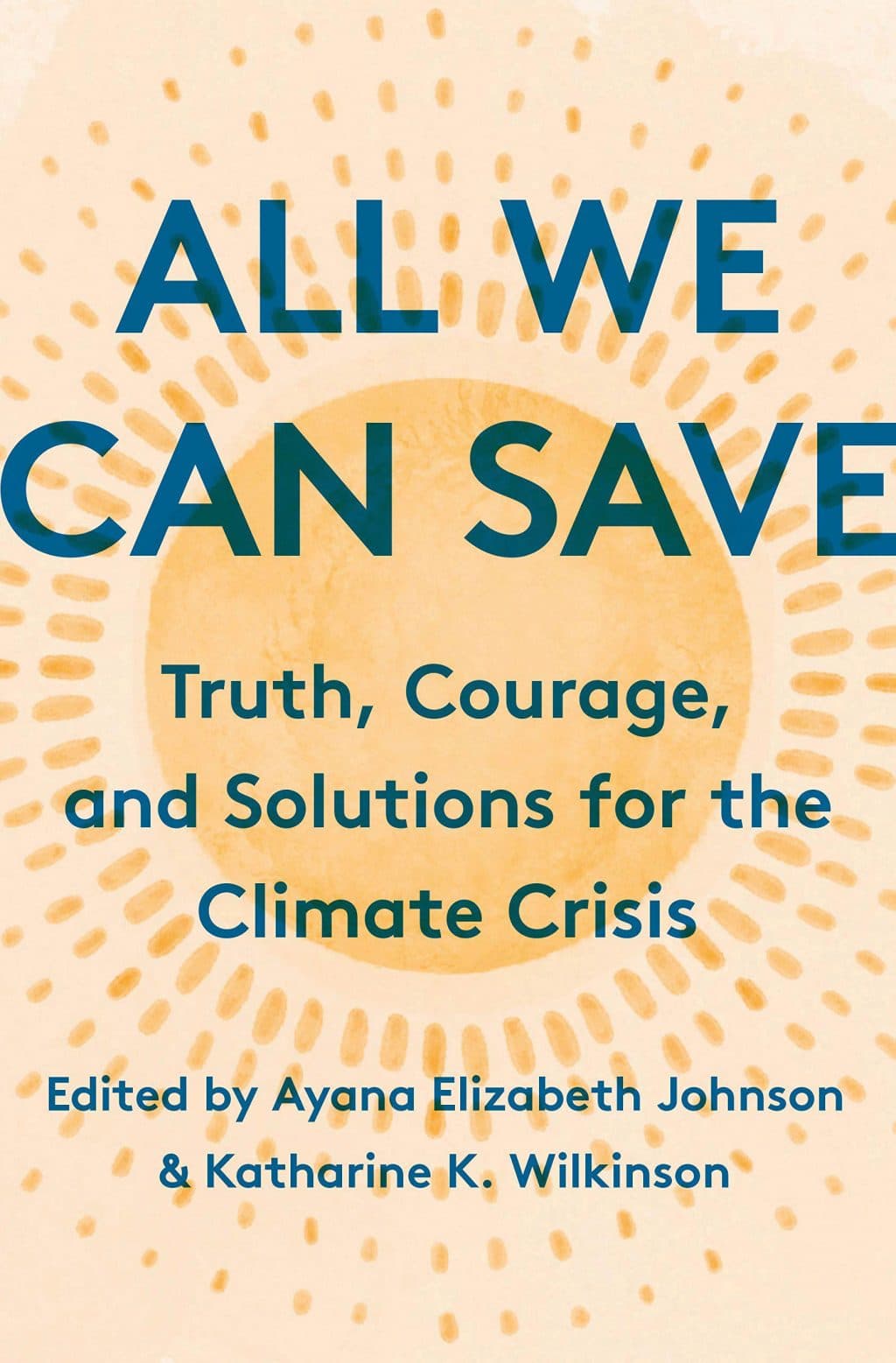
All We Can Save (book)
Reading about climate change can be downright depressing, but this collection of hopeful essays and poetry offers a blueprint for a new world we can create together, covering everything from housing and transportation to food sovereignty and the very words we use to talk about these issues.
Heated (newsletter)
If you count yourself as someone who is “pissed off about the climate crisis,” this newsletter helps expose the powerful forces that have led to this worldwide emergency and perpetuated myths about the effects of a warming world.

How to Save a Planet (podcast)
Each episode dives into a different climate issue as the hosts ask the tough questions like “Recycling! Is it BS?” and “How Screwed Are We?” The best part is that every episode ends with actionable steps you can take if you want to get more involved.
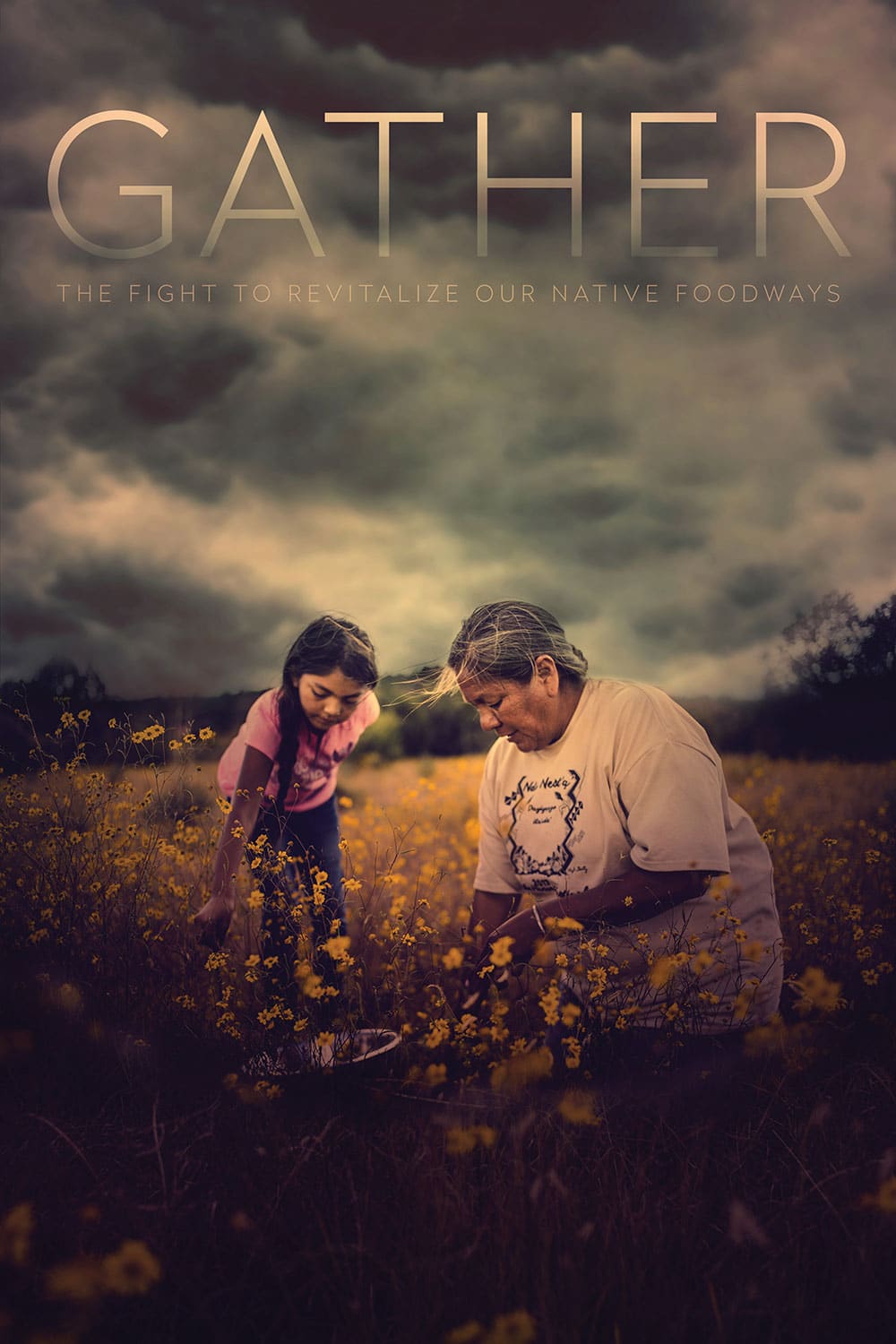
Gather (film)
This intimate documentary explores how Native Americans are reclaiming their identity through food sovereignty. Addressing centuries of genocide and trauma, these individuals and organizations demonstrate the healing power of culture, land, and food.
The Frontline (newsletter)
Featuring stories of culture and climate, this newsletter is your “daily reminder that the warming of the world is unjust.” From art and fashion to queer ecology and equity, learn how climate touches every part of society and justice.
Cover photo: Collecting kitchen scraps for the composting bin. Photo by Ellen Kanzinger.
